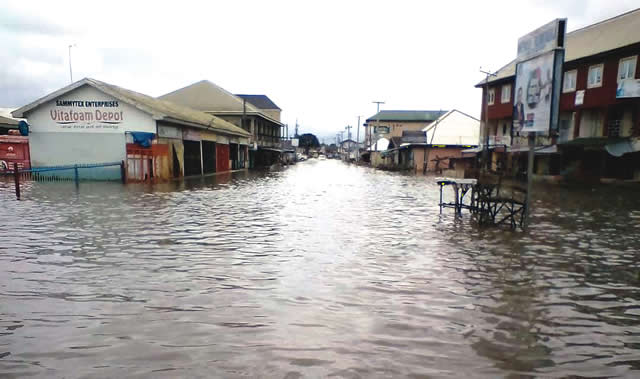Mr Bernard Gomez, World Meteorological Organisation (WMO) Representative for North, Central and West Africa, says there will be more weather and climate shocks in 2024 due to increase in global warming.
Gomez made this known in an interview with the News Agency of Nigeria (NAN) on Thursday in Abuja.
According to him, Nigeria and other countries across the globe should expect more weather and climate shocks regarding the trend of Greenhouse gases.
NAN reports that greenhouse gases are gases in the earth’s atmosphere that trap heat.
During the day, the sun shines through the atmosphere, warming the earth’s surface.
At night, the earth’s surface cools, releasing heat back into the air, but some of the heat is trapped by the greenhouse gases in the atmosphere.
“We are expecting more shocks in 2024. 2023 was the hottest year since records began in the world, and that has been the trend for the past 10 years. In fact, 2023 was just capping what was there in 2022, 2021 and since 2015. We have seen a significant increase in warming, and that just keeps increasing.
“I have been in Nigeria for the past 10 years, specifically in Abuja. I have never experienced the heat that I am experiencing this year,” he said.
Gomez said that communities in North, Central and West Africa, would need more commitment to generate more observations to predict what would happen.
He added that forecasters in the region should to be supported and trained to bring out good and accurate forecasts for action implementation to save lives and livelihoods.
“That is extremely important and, of course, we are not alone in this. The rest of the world is grappling with climate change and extreme weather events, and we are also learning from others. We learn and implement according to our environment. For instance, we are lucky that we are not in the tropical cyclone belt, where you have hurricanes and other things.
“Notwithstanding, we also have our issues like flood, heat waves which are very common in this part of the world,” he said.
According to him, humanity met a planet that was well-balanced but industrialisation, pollution and other human interferences are causing shocks and vulnerabilities.
He urged policymakers to show political will toward addressing climate change.
(NAN)


